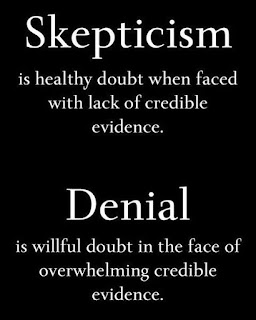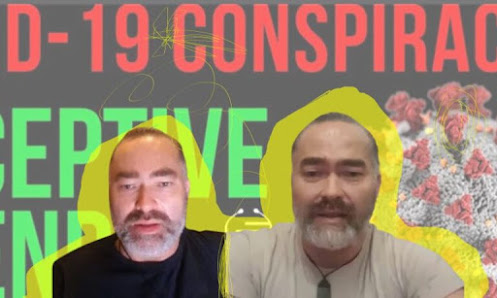Reason for Reason
"Ours are not beliefs. Ours are studies, facts, and science. Antivaxers have belief, just as delusional religious fanatics do because facts and reason are not on your side. All you have are delusions and misinformation." - Skeptical Kiwi.
Why do I do this? My partner asked me this question the other day. Why do I find so much pleasure in "trolling" idiots on the internet? Well, the short answer is, I enjoy it and think it's necessary. The long answer, well, let's talk about that.
Why do I do this? My partner asked me this question the other day. Why do I find so much pleasure in "trolling" idiots on the internet? Well, the short answer is, I enjoy it and think it's necessary. The long answer, well, let's talk about that.
I am a layman. I'm currently studying for a Bachelor of Science and hope to do more after that too. I currently enjoy all science really. I enjoy watching and reading about astrophysics and love Neil De Grasse Tyson and Brian Cox. I think though that learning Calculus and getting fully into physics is beyond me. I'll enjoy physics from a lay perspective I think. I thoroughly enjoy Biology and I'm good at it.
My passion is vaccination. From the moment I found out there was such a thing as antivaxers, I have been looking into it. I had gone the first 18 years of my life, thinking that everyone just accepted that vaccines were necessary. How wrong was I? The further down the rabbit hole I've gone, the crazier this shit has gotten! You can read my thoughts on vaccination here.
 |
| http://rationallythinkingoutloud.com/skepticism-vs-denial/ |
I think science is fun. It's interesting. It's beautiful. It can be spiritual for some people, as mentioned by Neil DeGrasse Tyson. When it comes to medical science, you get into life-saving territory. That's where it gets important. Vaccines are necessary and have eradicated so many diseases. Smallpox and polio are a couple of examples, both diseases have killed millions of people.
Some think that vaccination and any other view on conventional medicine should be a personal choice. A belief of sorts. Beliefs are important to some people. I'm not here to deride anyone for their religious beliefs, maybe another time, but when you think that you can pick and choose what to believe in science, then it's time we talked.
When you think that going to the doctor is the wrong thing to do, you're in trouble. When you think it's more appropriate to post on Facebook about your sick child rather than take them to the doctor, then you're wrong. When you think homeopathy is better than conventional medicine, you're wrong. When you convince someone with cancer to not go to the doctor and try all manner of horrible things (black salve, coffee/bleach/urine enemas, raw food, juice), then you're wrong. Ok, there's nothing wrong with a bit of juice every now and then, but it's not magic or healing. When you convince someone not to take their medication for any sort of illness, depression, HIV, cancer, diabetes and try unproven crap, then you're wrong! When you force bleach enemas on your autistic child, then you're a child-abusing piece of shit.
These ideas are not opinions. An opinion is that The Dark Knight is the greatest movie ever made or green is the best colour. Those are subjective opinions. You don't get to have an opinion on facts. Trump's administration coined the phrase "alternative facts", but that's just another way of saying bullshit. Something is either a fact or else it's not. Alternative medicine is the same. Medicines are studied, tested and if they don't work, they don't work. There have been 1800 studies on homeopathy. They all showed it doesn't work. Yet, people still choose to believe it works. There is a strong placebo effect with some people, but this is another matter for another time. Vaccines have been tested and tested. They're safe, effective and necessary.
When arguing on the internet, it can feel futile. Most of the time, you will not change the mind of the person you're directly arguing with. The hardline antivaxers are fairly set in their ways. But when you make your point in a public setting, or even in an echo chamber, there may be some undecided people, some fence-sitters. These people may see your point, they may see sanity and reason and decide to take their child to the doctor or get vaccinated or decide not to force feed their child Chlorine Dioxide (bleach). Plus, there's the added benefit of hearing the other side of the argument.
The harm brought about by these science deniers is extensive. From climate denial out in the open by decision makers in the USA, to closed groups on Facebook convincing people to force bleach enemas on their autistic children, thinking it will cure an imaginary parasite causing the autism. This is a deplorable action and needs to be prosecuted as child abuse. There is a Facebook group endeavouring to get this practice banned here.
 |
| https://www.facebook.com/TheQuestionist |
The reason I do this is the knowledge that I may help at least one person. In fact, I have recently convinced someone to take their SO to the doctor instead of listening to the others in the echo chamber. It was a Natural Therapy Cure Cancer group. Her husband was potentially suffering from cyanide poisoning due to eating apricot kernels and was very worried. Everyone else in the group was trying to convince her to do it this way, eat this with it instead. Nobody told her to see a doctor. I told her to and she said she would. I only hope she actually did.
Whenever you give facts on the internet, if it's against someone's ideology or belief, you may be labeled a troll or a shill (and sometimes other names like "fucking demon"), but it's necessary. We must stand and fight for reason and sense. This is necessary.




Perhaps the principal difference between pseudpseudoscience and science, from the point of a user of knowledge, is that pseudoscience is a belief system, and one believes or disbelieves the results, much like religion. Science, on the other hand, is a system for asking questions, based on protocols of trust. One does not believe the answers, one trusts or distrust them.
ReplyDeleteThat might seem at first glance to be an artificial distinction, but it's actually a fundamentally different way of thinking about knowledge.